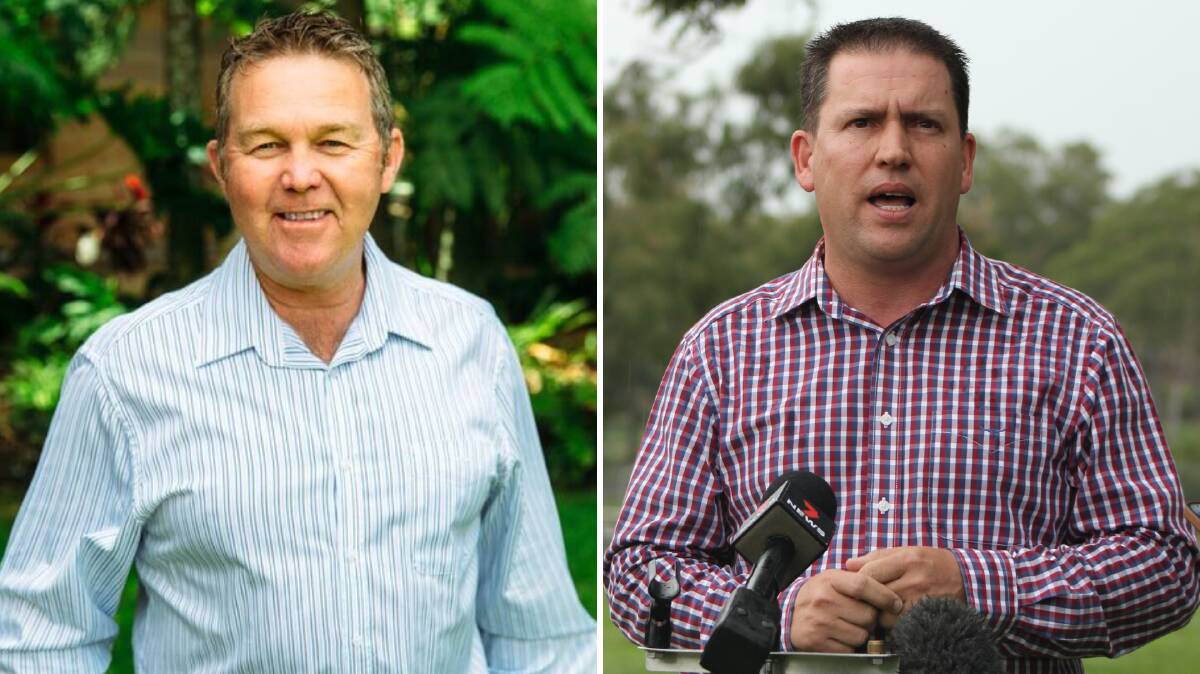
The battle for Flynn is shaping up to be one of the tightest contests in the election, with both sides of politics putting up well-known local political identities to fill the void left by retiring Nationals MP Ken O'Dowd.
The Queensland seat of Flynn has all the elements to make it one of the toughest fights in the election - a diverse voting population, a longstanding MP retiring and both sides putting up local identities to fill the void.
For the past 12 years, Nationals MP Ken O'Dowd has held the seat, which sits between Bundaberg and Rockhampton, stretching west to the Central Highlands and south to South Burnett.
The seat is held by the Liberal-National Party with an 8.7 per cent margin, but it is considered one of Labor's best chances to swing a Queensland seat, with an inflated preference flow at the last poll boosting the two-party preferred result and LNP losing the personal vote of Mr O'Dowd.
It's a diverse region. Agriculture and the resource industries - which often have competing interests - provide its economic backbone.
Flynn is home to multiple coal mines and coal-fired power stations, a liquid natural gas export port and an aluminium smelter. It's agriculture sector ranges from cattle to sugarcane and macadamia nuts to citrus orchards.
The region's diversity makes it tricky to get the messaging right for both major parties - which is why they're leaning on well known and established local political identities.
The LNP has put forward local state MP, Colin Boyce, who represents the overlapping electorate of Callide. Mr Boyce is a qualified boilermaker and farmer who has been described as "an old-style Queensland National", who won the seat of Callide with a comfortable 15.8 per cent margin at the October 2020 state election
In response, Labor has put forward one of the party's strongest candidates for the upcoming election in Gladstone mayor Matt Burnett, who has a strong personal presence in the city, after 20 years on the local council.
Although Flynn is considered a safe LNP seat, the Coalition is taking the threat from Labor seriously, and Nationals leader and Deputy Prime Minister Barnaby Joyce has been spending time and money in the electorate pre-election, recently committing $600m to restore Paradise Dam to its original height.
In response, Labor vowed to match the government's commitment.
The dam is the main water source for the Queensland food bowl of Bundaberg, however two years ago its capacity was almost halved when the spillway was lowered due to safety concerns and the diminished water supply has remained a point of contention among local producers.
Both candidates have strong supporter bases in opposing locations and will need to preach to the unconverted in enemy territory to win the seat.
The electorate's largest city, Gladstone, is traditionally a Labor stronghold. The party convincingly won all of larger polling booths at the last election in and around the city, despite the seat's overall swings towards the LNP.
But Labor's popularity in the coastal city is offset by the iron grip the LNP holds over the electorate's smaller country towns.
But several polls suggest the Nationals rhetoric on climate and energy - which raises concerns about net-zero emissions and strongly favours coal - might work against them, even in conservative coal-heavy seats such as Flynn.
A YouGov survey of Flynn found the majority of voters (52pc) say climate action is "an important issue" or "the most important issue" for the upcoming election, while 61pc say the government either needs to "do more" or "much more" on climate change.
Mr Boyce has already vowed to campaign against the 2050 net zero policy if elected, despite his party's begrudging support for it.
The ability of each party to communicate their plan for the nation's energy transition will be a key issue within Flynn. Labor did not get its messaging right at the 2019 election, particularly around coal, where its policy varied depending on what seat or state the party was speaking from.
Despite being coal heavy, polling suggests Flynn voters are aware the electorate's future lies elsewhere in renewables - Gladstone will soon house one of the world's largest green energy hydrogen manufacturing facilities.
Locally support for more renewable energy projects (66pc) far exceeds support for coal and gas (34pc).
From a state-wide perspective, recent polling by the Climate Media Centre shows only a quarter of voters in Queensland believe their state's future prosperity lies in coal and gas, while 60pc say the government's top investment priority should be in renewables, as opposed to coal (20pc) and gas (15pc).
Only two-in-10 believe workers who rely on fossil fuels are getting enough support to prepare for a decarbonised future without coal and gas.
Don't be surprised if to see Mr Joyce and Labor leader Anthony Albanese making several appearances in the electorate throughout the campaign to sure up support.
If the bookies are to be believed, the battle for Flynn is anyone's game.


